Fourth SEBI-NISM Research Conference on “Indian Securities Markets – The Next Agenda” | March 02 – 03, 2023 | NISM Campus, Patalganga
The 4th SEBI NISM conference on the theme of “The Indian Securities Markets – The Next Agenda” at NISM Patalganga campus. The Conference was attended by academics, regulatory officials, industry professionals, researchers, faculty and students of NISM
The conference started with address by Dr. CKG Nair, Director, NISM. He highlighted the challenges being faced by regulatory agencies in an ever changing environment and stressed that regulators should have a clear design and overarching philosophy for regulations rather than following a “whatever it takes approach”. He also spoke about the different conflicts involved balancing market development with investor protection and regulation; focussing on all violations or pursue and prevent large manipulations quickly. Under the current phase of explosive technological developments happening in the markets, it is essential for regulators to build the right skills, tools to address challenges like high volatility, systemic stability etc. Research conferences can help in strengthening the understanding of the regulators and industry on the impact of various factors on markets.
Mr. Anant Narayan, WTM, SEBI, in his address emphasized that the regulatory goals of SEBI are enshrined in the SEBI act in terms of investor protection, market development and regulation of the market. He spoke about the growing participation of retail investors in the market. He felt that it is important for the capital markets to ensure that there is consistent capital formation happening in the economy. This has to be ensured by academia, industry, regulators collaborating with each other.
The Inaugural address was delivered by Ms. Madhabi Puri Buch, Chairperson, SEBI. The important takeaways of her address centered around a comprehensive next one-year agenda for the regulator and markets. On the issue of ensuring adequate capital formation, the chairperson informed that SEBI will focus on new products that will meet the infrastructure development needs of the Indian economy. The regulation of these products will be customized to meet the different needs of infrastructure growth and development. She also emphasized that as the market regulator, SEBI will strive to do “what is right for the markets and not what is easy for SEBI to do”. Speaking on the challenges related to market surveillance and supervision, she said that SEBI is revamping the entire system and make it more data based and technology enabled.
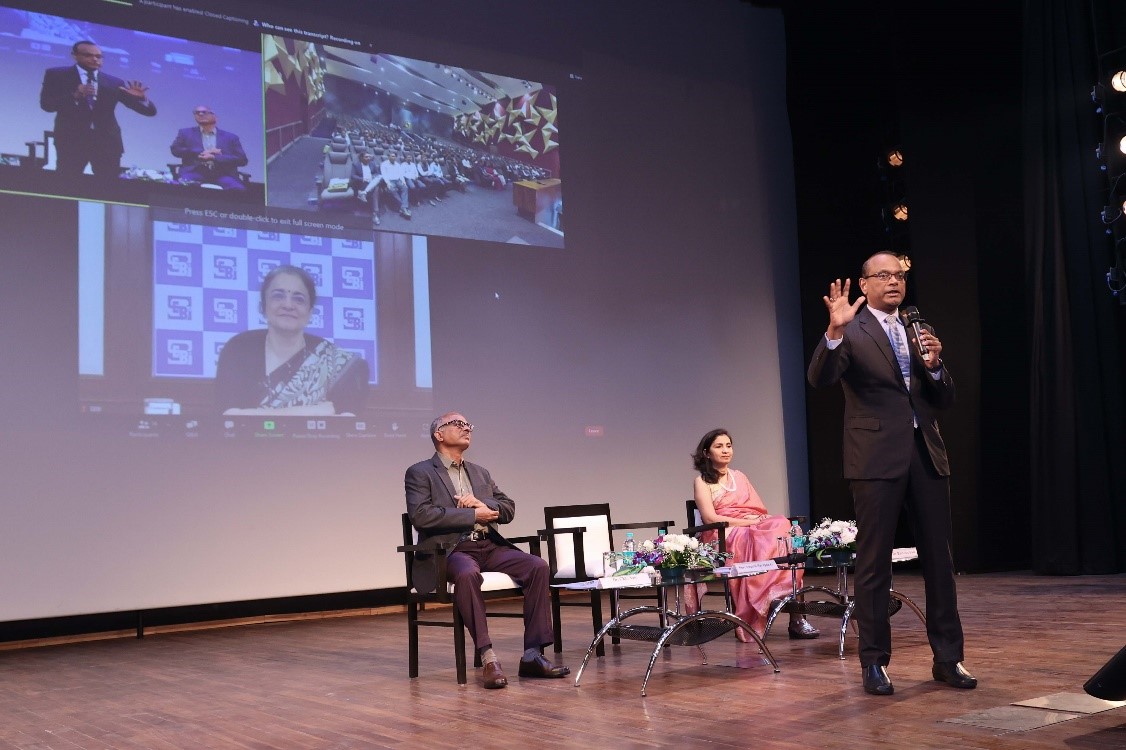
The highlights of the conference include Panel discussions by distinguished professionals and technical research paper presentation sessions on 4 topics of contemporary relevance namely REITs and InvITs; Opportunities and Challenges; Growth with Sustainability – Inspiring Practices relevant for Emerging Markets; Mutual Funds – The path to USD 1 trillion Industry in India; RegTech, SupTech & Regulatory Compliances – Global trends and Regulatory Roadmap.
The REITs and InvITs panel spoke on a range of issue covering the structure of these products, how they are different from other investments, what investors can expect by investing in them, taxation and need for improving the literacy among investors to enhance retail participation in these investments.
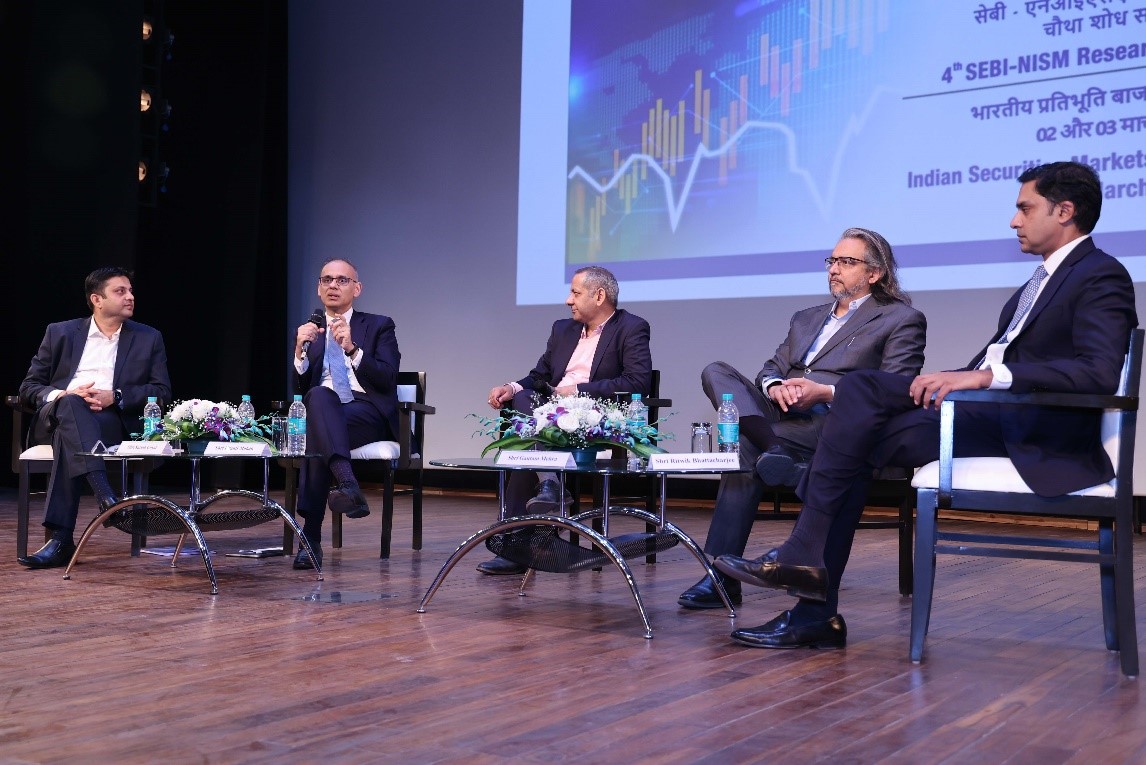
The panel on Growing with stability covered the disclosure and other challenges related to sustainability and investments. The panel spoke about the emergence of ESG, enactment of Business Responsibility & Sustainability Reporting (BRSR) to improve disclosures and ways to strengthen the disclosures related BRSR such that it is useful for investors and helps in developing reliable measures that can be used to measure the ESG status of companies reporting.
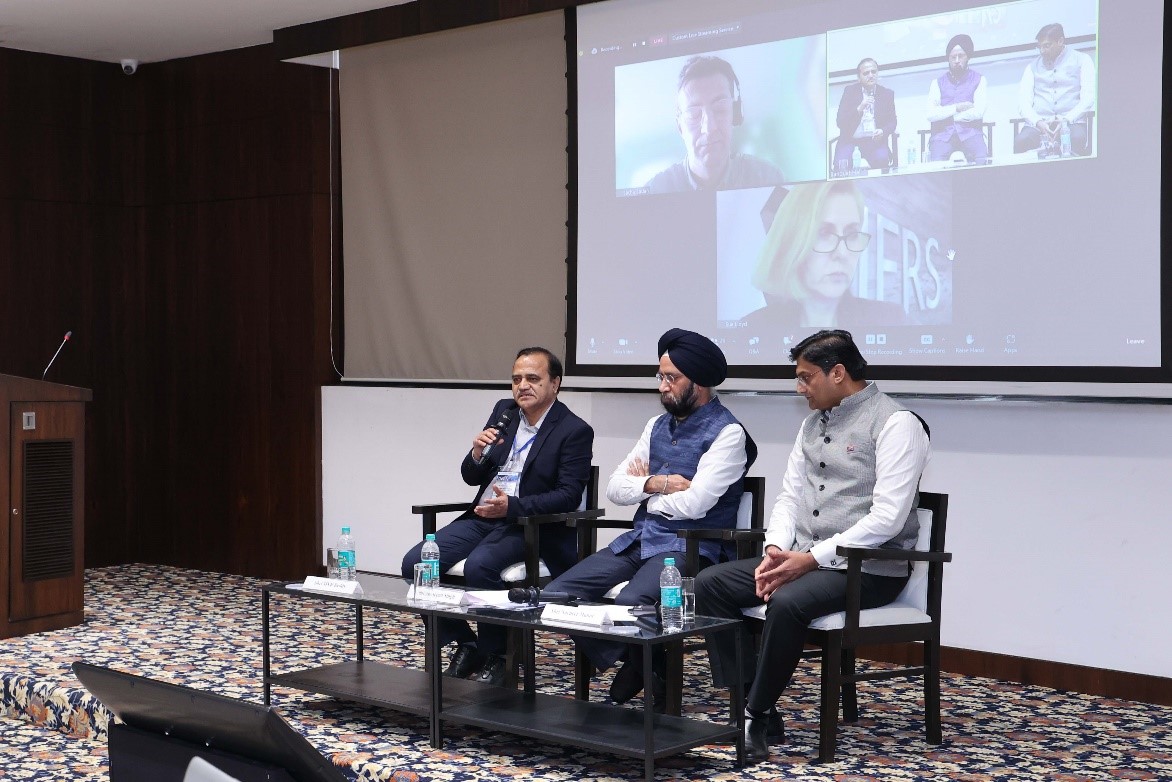
The Panel on converting the mutual fund industry to 1 trillion-dollar industry, covered various aspects of active and passive investing, use of advisory model instead of commission based model for distribution of products, and the fact that mutual funds should become investment solution providers instead of concentrating on different products or developing complex products.
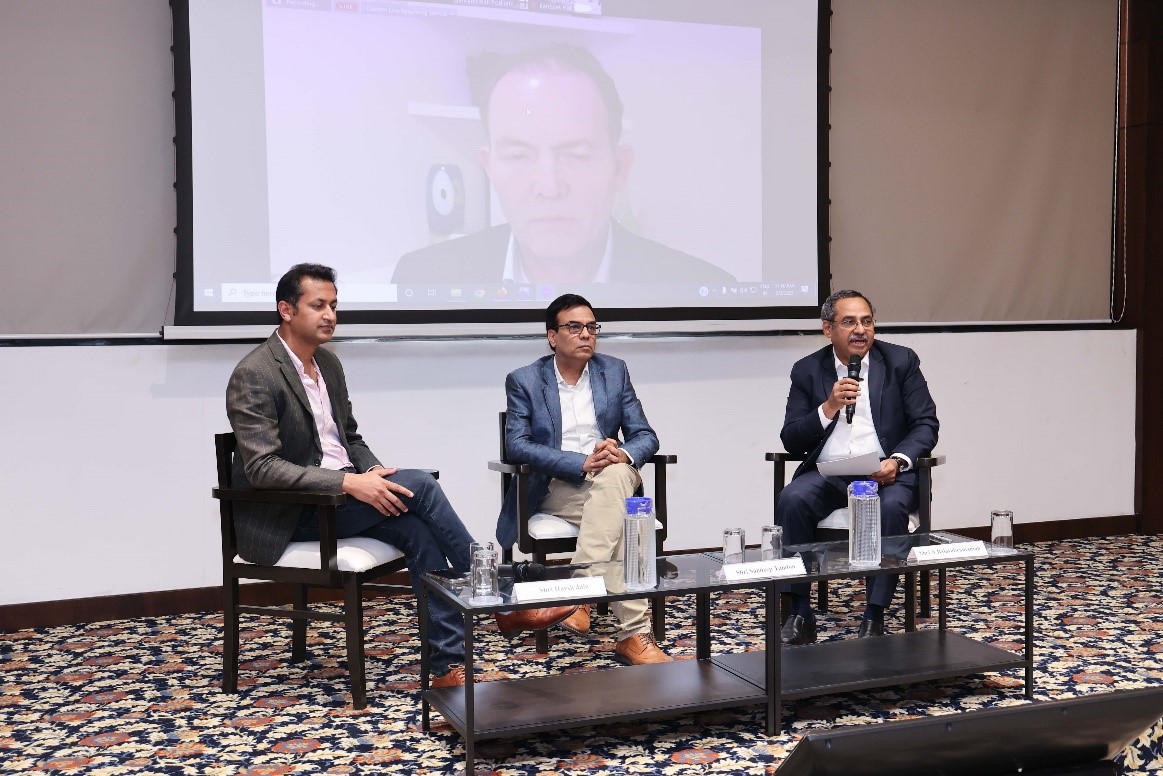
The panel on RegTech and SupTech discussed the need to move away from document-centric surveillance and supervision to data-centric technology based models. The panel insisted on the need for data sharing and use of standard files and formats by the front-line regulators like market infrastructure intermediaries. A detailed outline of the technological interventions adopted by the exchanges in the recent years was also provided.
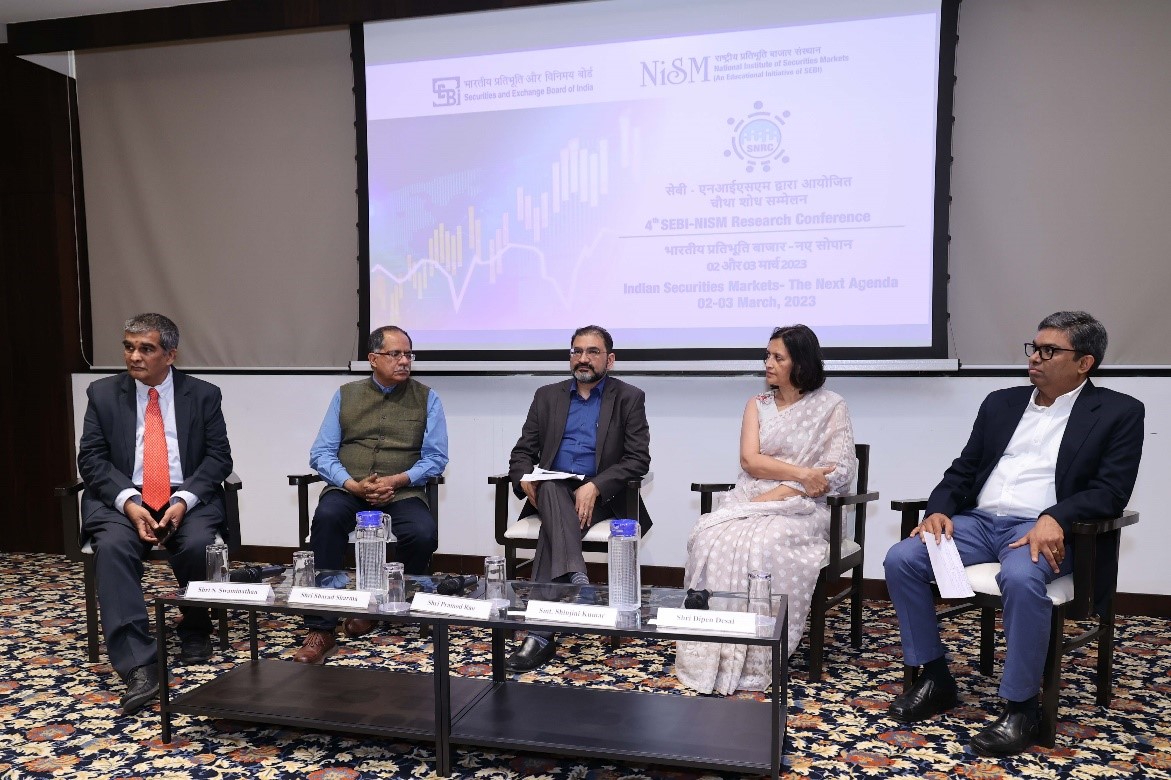
The conference received 112 research papers from authors all over the country. 12 papers in the general category and 6 papers in the Young Researchers’ category [YRC] was presented in the technical paper presentation sessions scheduled across the two days. 12 research papers were on subthemes related to Corporate bonds, Financing for Growth – Innovation and Investor protection, Emerging trends and policy lessons from the Asset Management Industry, Market risk and supervisions were presented by authors from various Institutions. The young researchers presented papers on themes that related to securities markets like volatility spill overs, market microstructure aspects related to order imbalances and market efficiency, information content of limit order book and the like.
Best paper awards were presented to 3 best papers in the general category and one paper under the young research category. These awards were declared and presented to the authors during the Valedictory Session by Guest of honour, Prof. Malabika Deo, Director NISM Dr. CKG Nair, Mr. Sunil Kadam, Registrar, NISM and Dr. Prabhas Rath, CGM, SEBI.
The details of the best paper awards are as follows:
1. First Best Paper Award – Does the personal cost of bankruptcy affect related party transactions? An evidence from a quasi-natural experiment in India (Ranjeet Singh)
2. Second Best Paper Award – A Nonparametric Framework for Evaluating Indian Mutual Fund AMCs (Kaushik Bhattacharjee, Diganta Mukherjee, Ruparnab Sengupta & Sankarshan Basu)
3. Third Best Paper Award – Predicting financial manipulation of listed companies using machine learning techniques (Abdul Aziz Barbhuiya, Sudip Dey & Ashim Kumar Das)
4. YRC Best Paper Award-The role of contract specification in market quality of the derivatives instruments: Evidence from India (Rahul Kumar)

